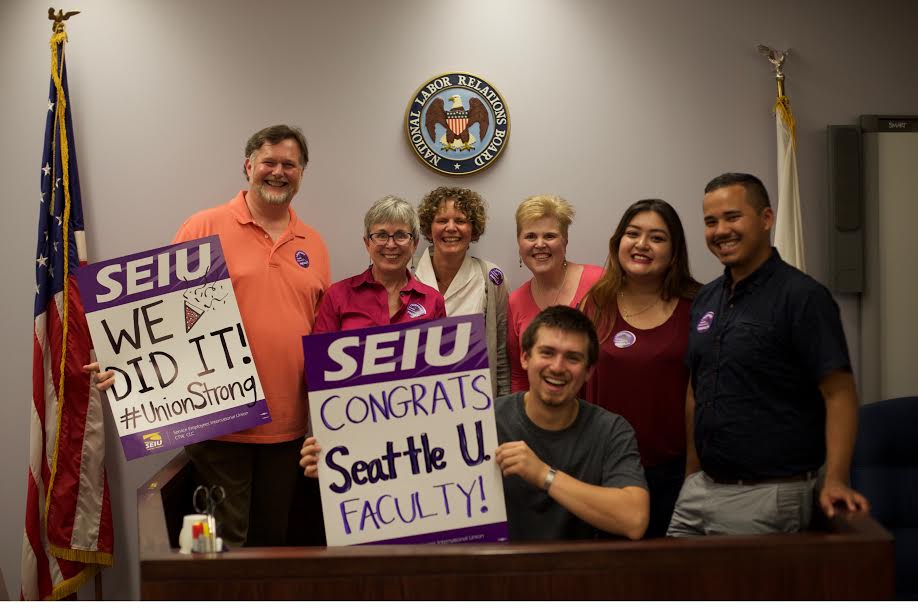Faculty at St. Louis Comm. College Vote Overwhelmingly to Join SEIU
Part-time faculty at St. Louis Community College (STLCC) have overwhelmingly voted to form a union with Service Employees International Union (SEIU) Local 1. Over 90 percent of ballots cast voted in favor of joining SEIU along with colleagues at Washington University in St. Louis who voted to form a union earlier this year.
Maryanne Angliongto teaches astronomy at ST LCC. She said “This vote gives part-time faculty at St. Louis Community College a voice with the administration that they did not previously have. It will allow those who do not get the chance to talk regularly with other instructors the opportunity to do so and to raise our concerns with the administration.”
While colleges and universities officials sometimes act to undermine the relationship between faculty who want to form a union and the administration, the Post Dispatch reports that STLCC Chancellor Jeff Pittman said, “I believe it’s in the best interest of our students (for adjuncts to form a union),” Pittman said. “I think it’s a positive anytime you can better work with a group and share ideas and insights.”
The victory at STLCC is part of a national campaign to raise workplace standards and fight for affordable, quality public education. The fall SEIU Faculty Forward activists at public colleges and universities including the University of Washington, University of Minnesota, and the University of North Carolina are uniting to fight for the important resources to ensure access to affordable, quality higher education.
Sixty-one percent of faculty at America’s community colleges are part-time and often poorly paid, 80 percent do not have access to tenure. Many must teach at several different institutions just to make ends meet. By forming unions, community colleges faculty are leading to advocate for 2-year public colleges which are by far the most affordable and accessible higher education institutions.
During the fall, faculty across the country have been highlighting how the corporatization of higher education affects students, faculty and taxpayers. While community colleges are a much better deal for taxpayers, over 100 have agreements with the University of Phoenix that will “funnel” students into their programs instead of another public college. A Bachelor’s degree at a for-profit college may cost 20% more than a similar degree at a public college.
By investing in community colleges, we will both improve student opportunities for first generation college students in disadvantaged communities, and increase stability for a largely contingent faculty workforce that will create an academic environment where their teachers can focus on their needs with increased stability.

